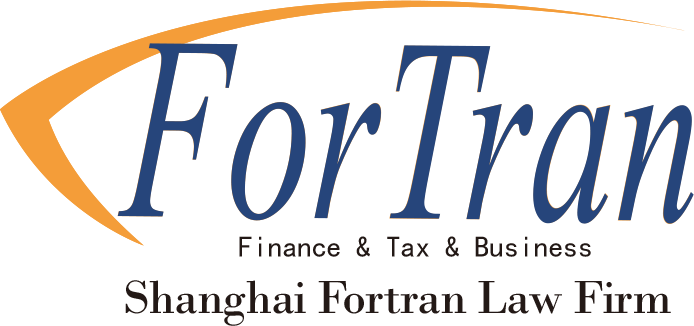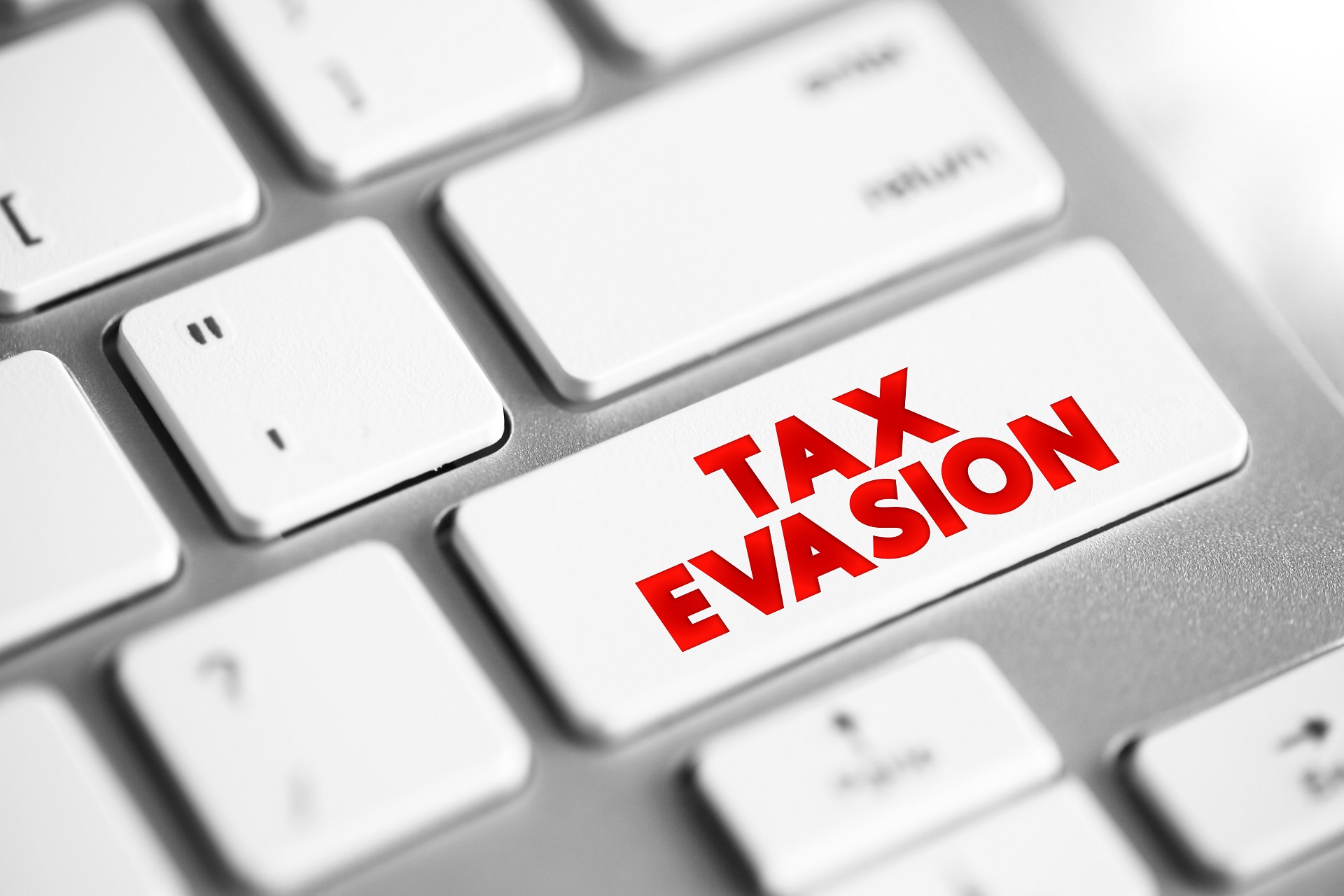This article examines whether intent is a necessary element in determining tax evasion under Chinese tax law and who bears the burden of proof. By analyzing legal provisions, administrative rulings, and court decisions, it argues that subjective intent must be established and proven by tax authorities.
Preview
This article examines whether intent is a necessary element in determining tax evasion under Chinese tax law and who bears the burden of proof. By analyzing legal provisions, administrative rulings, and court decisions, it argues that subjective intent must be established and proven by tax authorities.
Authored by: Susan Yang
I. Case Summary
On February 24, 2012, the Jining Municipal Tax Inspection Bureau of the State Taxation Administration of Shandong Province (hereinafter referred to as “Jining Tax Inspection Bureau”) issued a "Notice of Confirmed False Invoicing" to the Beijing Municipal Tax Inspection Bureau of the State Taxation Administration (hereinafter referred to as “Beijing Tax Inspection Bureau”). The notice stated that 186 invoices had been confirmed as falsely issued, involving a total invoice amount of RMB 183,583,119.70. The materials provided included a detailed list of VAT special invoices falsely issued by Jining Hongyuan Chemical Trade Co., Ltd. (hereinafter referred to as "Hongyuan Company"). Subsequently, the Beijing Tax Inspection Bureau forwarded these materials to the Shunyi District Office of the State Taxation Administration (hereinafter referred to as "Shunyi Tax Bureau") and designated it to conduct an investigation and handle the case.
Beijing Zhongyou Guomen Fuel Sales Co., Ltd. (hereinafter referred to as "Zhongyou Guomen") had a business relationship with Hongyuan Company involving refined oil transactions. On March 23, 2012, the Shunyi Tax Bureau initiated a special tax inspection against Zhongyou Guomen. Following the investigation, one of the violations identified was that between December 2010 and February 2011, Zhongyou Guomen obtained 186 VAT special invoices issued by Hongyuan Company without any actual goods transactions. These invoices amounted to RMB 183,583,119.74, with a VAT amount of RMB 31,209,130.26, bringing the total invoice amount to RMB 214,792,250. Zhongyou Guomen deducted the input VAT of RMB 31,209,130.26 in its tax filings for December 2010, January 2011, and February 2011.
Pursuant to Article 63 of the Tax Collection and Administration Law and Article 1 of the Notice of the State Taxation Administration on the Handling of Taxpayers Obtaining Fraudulent VAT Special Invoices (Guo Shui Fa [1997] No. 134, hereinafter referred to as "Circular 134"), Zhongyou Guomen’s conduct constituted tax evasion.
On July 15, 2013, the Shunyi Tax Bureau issued the Tax Administrative Penalty Decision (Shun Guo Fa [2013] No. 212) against Zhongyou Guomen, imposing, among other penalties, a fine equal to the amount of tax evaded, totaling RMB 31,209,130.26, in accordance with Article 63 of the Tax Collection and Administration Law.
Furthermore, the Shunyi Tax Bureau determined that Zhongyou Guomen’s conduct of falsely issuing VAT special invoices was suspected of constituting a criminal offense and met the criteria for referral to judicial authorities. Accordingly, on August 7, 2013, the case was transferred to the Shunyi Branch of the Beijing Municipal Public Security Bureau for review.
On July 2, 2015, the Third Branch of the Beijing Municipal People’s Procuratorate issued a Decision Not to Prosecute ([2015] No. 17) regarding Xu Guoli, the deputy general manager of Zhongyou Guomen responsible for fuel sales and procurement. The decision confirmed that between December 2010 and March 2011, Xu, while serving as deputy general manager overseeing company operations, facilitated Zhongyou Guomen’s acquisition of 186 VAT special invoices issued by Hongyuan Company despite the absence of actual goods transactions. Zhongyou Guomen subsequently issued 193 VAT special invoices in Beijing to three other companies, involving a total VAT amount of RMB 32,082,278.45. The Third Branch of the Beijing Municipal People’s Procuratorate ultimately decided not to prosecute Xu Guoli, on the grounds that he was not subjectively aware that there were no actual transactions and therefore lacked criminal intent.
II. Author’s Opinion
(A) Is Intent a Constituent Element of Tax Evasion?
There has been ongoing debate over whether intent is a necessary constituent element of tax evasion as an administrative violation. Following the enactment of the Administrative Penalty Law of the People's Republic of China (2021 Amendment), an increasing number of opinions support the view that, under Article 33, Paragraph 2 of this law, the determination of tax evasion should be predicated on the taxpayer's intent. However, in practice, some courts maintain that tax evasion does not necessarily require intent. For instance, in the case of Qinghai Zhaojin Trading Co., Ltd. v. Xining Economic and Technological Development Zone Tax Bureau,[1] the appellate court held that "Article 63 of the Tax Collection and Administration Law does not explicitly stipulate that tax evasion must involve the taxpayer's intent. Instead, it adopts an approach of 'conduct + consequence + penalty,' meaning that administrative penalties for tax evasion are based on objective imputation rather than the taxpayer's subjective intent. As long as the taxpayer employs methods prescribed in tax laws to evade tax, resulting in non-payment or underpayment of tax, the conduct can be deemed tax evasion regardless of the taxpayer's intent."
In my opinion, Article 63, Paragraph 1 of the Tax Administration Law of People’s Republic of China (2015 Amendment) (hereinafter referred to as the "Tax Administration Law") establishes intent as a necessary element of tax evasion.
1. Interpretation of "Tax Evasion" Under Article 63 of the Tax Administration Law
Article 63 of the Tax Administration Law states: "A taxpayer who fabricates, falsifies, conceals, or arbitrarily destroys accounting books or accounting vouchers, or overstates expenses or omits or understates income in accounting books, or refuses to file tax returns or files false tax returns after being notified by the tax authority, thereby failing to pay or underpaying tax, is guilty of tax evasion."
The term "evasion" inherently implies intent.
Article 63 lists three categories of tax evasion: (i) Acts related to accounting books and vouchers; (ii) Acts related to accounting recognition and measurement (recording of expenses and income in accounting books); (iii) Acts related to tax filing.
(1) Acts Related to Accounting Books and Vouchers
The terms "fabricate," "falsify," "conceal," and "arbitrarily destroy" inherently suggest intent.
(2) Acts Related to Accounting Recognition and Measurement
The terms "overstating expenses" or "omitting or understating income" do not directly indicate intent. To be deemed "tax evasion," such acts must be committed with the intent of "failing to pay or underpaying tax" and must result in such an outcome.
"Overstating expenses" or "omitting or understating income" may occur due to accounting errors or differing interpretations of accounting policies. According to Accounting Standard for Business Enterprises No. 28—Changes in Accounting Policies, Accounting Estimates, and Error Corrections, accounting errors themselves do not constitute violations and can be corrected. Therefore, only instances where "overstating expenses" or "omitting or understating income" are carried out with the intent to "evade or underpay tax" should be considered tax evasion.
(3) Acts Related to Tax Filing
"Refusal to file tax returns after being notified by the tax authority" depends on whether the tax authority has indeed issued a notification, as a refusal can only occur after a notification.
In many administrative disputes, tax authorities and courts refer to judicial interpretations such as the Supreme People's Court's Interpretation on Several Issues Concerning the Application of Law in the Trial of Criminal Cases of Tax Evasion and Tax Resistance (Interpretation [2002] No. 33) and the Interpretation of the Supreme People's Court and the Supreme People's Procuratorate on Several Issues Concerning the Application of Law in Handling Criminal Cases of Tax Administration Violations (Interpretation [2024] No. 4) to determine that a taxpayer or withholding agent who has duly registered for tax or withholding obligations is deemed to have been notified by the tax authority.
"Filing false tax returns" implies intent, meaning the taxpayer knowingly submits false information on tax returns or knowingly uses false supporting documents to file returns, with the objective of "evading or underpaying tax." If a taxpayer merely makes a reporting error due to negligence or if discrepancies arise from differing interpretations, leading to inconsistencies between the taxpayer's declaration and the content recognized by the tax authority, such conduct should not be classified as intentional tax evasion.
In the case of Liaocheng Longchang Investment Co., Ltd. v. Liaocheng Tax Bureau,[2] both the first-instance and appellate courts held that for tax evasion via false tax declarations, intent must be established, meaning that the taxpayer must have knowingly caused a tax loss to the state and actively pursued this harmful outcome. Objectively, the taxpayer must have engaged in submitting false applications and fabricating supporting materials.
2. The State Taxation Administration's Official Responses
In the State Taxation Administration's reply to the Hohhot Changlong Food Co., Ltd. case (Guo Shui Ban Han [2007] No. 513), it was stated that "The Tax Administration Law does not explicitly define the nature of self-corrected underpaid taxes. In handling such cases, the determination of tax evasion should still follow the requirement that tax evasion entails intent, specific means, and consequences. If a taxpayer voluntarily corrects an underpayment before a tax audit, such self-correction constitutes a supplementary declaration and payment of tax rather than evidence of intent to evade tax. Accordingly, it should not be classified as tax evasion."
Although this reply pertained to a specific case, I believe its criteria for tax evasion should be universally applicable: intent + specific means + consequences.
Some argue that, according to Article 4 of the Provisional Regulations on Individual Tax Case Replies (Guo Shui Fa [2012] No. 14), a tax case reply applicable on a general scale should be issued as a normative tax document. Since Guo Shui Ban Han [2007] No. 513 was an individual case response, its description of tax evasion elements should not be broadly applied. However, this viewpoint is debatable. First, the particularity of that case lies in "self-correction of underpaid tax," not in the elements of tax evasion. Second, if the intent element was required in that case to determine tax evasion, why should it not be required in other cases? Would applying different standards contradict the principle of fairness?
Subsequently, the State Taxation Administration's reply regarding the Beijing Julingyan Plastic Co., Ltd. case (Shui Zong Han [2016] No. 274) reaffirmed that the absence of intent precludes a finding of tax evasion.
In practice, in the case of Zhejiang Guanghong Real Estate Development Co., Ltd. v. Hangzhou Tax Bureau, [3]the Zhejiang High People's Court (as the reviewing court) held that tax bureau assertions that tax laws do not emphasize intent contradict multiple official replies, including Shui Zong Han [2013] No. 196 and Shui Zong Han [2016] No. 274, which consistently recognize intent as a necessary element of tax evasion.
The reasonableness and legality of tax administrative penalties directly impact taxpayers' rights and interests. In administrative enforcement, considering taxpayers' subjective intent is a fundamental requirement of tax law principles.[4] The determination of "tax evasion" not only affects administrative penalties but may also relate to the crime of tax evasion under the Criminal Law of the People's Republic of China. Therefore, incorporating intent as a constituent element of tax evasion is essential.
(B) Does the Tax Authority Bear the Burden of Proof Regarding the Taxpayer’s Intentional Tax Evasion?
There has been ongoing debate over whether the tax authority must collect evidence proving a taxpayer’s subjective intent when determining tax evasion. Some argue that "the tax authority only needs to establish that the taxpayer engaged in conduct specified under the Tax Collection and Administration Law and that such conduct resulted in the corresponding consequences. Whether the taxpayer possessed an intent to evade taxes is not within the tax authority’s burden of proof. If the taxpayer fails to prove the absence of subjective fault, the tax authority may impose penalties for tax evasion."[5] Others contend that the principle of presumption of fault may be applied in determining subjective fault in unlawful conduct. However, the author believes that this principle should not be applied to subjective intent. The mere fact that a taxpayer engaged in unlawful conduct resulting in adverse consequences does not automatically imply an intent; rather, such intent must be substantiated with relevant evidence.[6]
The author maintains that the elements of tax evasion dictate that the tax authority bears the burden of proving the taxpayer’s intentional pursuit of "non-payment or underpayment of taxes."
1. Legal Provisions
Pursuant to the following legal provisions, when subjective intent constitutes an element of tax evasion, the tax authority must prove the taxpayer’s deliberate intention to "evade or underpay the due taxes":
(1) Article 53 of the Tax Administrative Reconsideration Rules (2018 Amendment) stipulates that "in administrative reconsideration, the respondent bears the burden of proof for the specific administrative act it has undertaken."
(2) Article 44(1) of the Administrative Reconsideration Law of the People's Republic of China (2023 Amendment) states that "the respondent bears the burden of proof regarding the legality and appropriateness of the administrative act it has undertaken."
(3) Article 34(1) of the Administrative Litigation Law of the People's Republic of China (2017 Amendment) provides that "the defendant bears the burden of proof for the administrative act it has undertaken and must present the evidence and normative documents on which the administrative act is based." Furthermore, Article 37 states that "the plaintiff may present evidence to prove the illegality of the administrative act. If the plaintiff’s evidence is deemed insufficient, the defendant is not exempt from its burden of proof."
In practice, in the case of Zhejiang Guanghong Real Estate Development Co., Ltd. v. Hangzhou Tax Bureau of the State Taxation Administration, [7]the Zhejiang Higher People’s Court (acting as the court of retrial) held that " since administrative agencies bear the burden of proving the legality of their actions in administrative litigation, tax authorities must investigate and establish a taxpayer’s intent in cases of nonpayment or underpayment of taxes when determining and addressing tax evasion. Accordingly, they are also responsible for providing evidence of such intent in administrative litigation."
Additionally, Article 33(2) of the Administrative Penalty Law of the People’s Republic of China (2021 Amendment) states that "if the party concerned presents evidence sufficient to prove the absence of subjective fault, no administrative penalty shall be imposed, except as otherwise provided by laws and administrative regulations." This provision establishes the principle of presumption of fault in administrative penalties by shifting the burden of proof. However, subjective faults encompass both intent and negligence. The author agrees with the view that intent should not be presumed under the principle of presumption of fault, meaning that the tax authority must investigate and collect evidence proving the taxpayer’s subjective intent to evade taxes.
2. Responses from the State Taxation Administration
In the Reply of the State Taxation Administration on Whether Correction and Payment of Taxes During Tax Inspection Affects the Determination of Tax Evasion (Shuizonghan [2013] No. 196), it is stated that "if a taxpayer voluntarily corrects its declaration and pays the tax before a tax inspection by the tax authority’s audit bureau, and if the tax authority lacks evidence proving the taxpayer’s subjective intent to evade taxes, the case shall not be treated as tax evasion."
Similarly, in the Reply of the State Taxation Administration on the Review Opinion of the Tax Evasion Case of Beijing Julingyan Plastic Co., Ltd. (Shuizonghan [2016] No. 274), it is stated that "from an evidentiary perspective, the enterprise cannot be determined to have had subjective intent to evade taxes."
Both replies underscore that, when making a determination of tax evasion, the tax authority must possess corresponding evidence proving the taxpayer’s subjective intent.
[1] Qinghai Zhaojin Trading Co., Ltd. v. Xining Economic and Technological Development Zone Tax Bureau Inspection Bureau, State Taxation Administration – Administrative Penalty Case, Qinghai Intermediate People’s Court, Administrative Judgment No. 176 (2023) Qing 01 Xing Zhong.
[2] First Inspection Bureau of Liao City Tax Bureau, State Taxation Administration v. Liaocheng Longchang Investment Co., Ltd. – Tax Administrative Management (Taxation) Case, Liaocheng Intermediate People’s Court, Administrative Judgment No. 277 (2019) Lu 15 Xing Zhong.
[3] Zhejiang Guanghong Real Estate Development Co., Ltd. v. Hangzhou Tax Bureau Inspection Bureau, State Taxation Administration – Tax Administrative Management (Taxation) Case, Zhejiang High People’s Court, Administrative Judgment No. 44 (2020) Zhe Xing Zai.
[4] Wu Jie, “Study on the Burden of Proof for Taxpayers’ Subjective Intent in Tax Evasion—A Case Analysis of ‘Beijing Oil Sales Co., Ltd.’,” published in Legal Exposition, 2023, Issue 30, pp. 21-23.
[5] Zhai Jiguang & Zhao Defang, “No Tax Administrative Penalty Without Subjective Fault? Industry Experts Weigh In,” published on the WeChat public account China Taxation News, February 2, 2021.
[6] Wang Jiaben, “Jiaben on Cases: Determining Subjective Intent in Tax Evasion—The Lawsuit of Company J Against a Tax Treatment Decision,” published in Certified Tax Agents, 2022, Issue 1, pp. 25-30.
[7] Zhejiang Guanghong Real Estate Development Co., Ltd. v. Hangzhou Tax Bureau Inspection Bureau, State Taxation Administration – Tax Administrative Management (Taxation) Case, Zhejiang High People’s Court, Administrative Judgment No. 44 (2020) Zhe Xing Zai.



